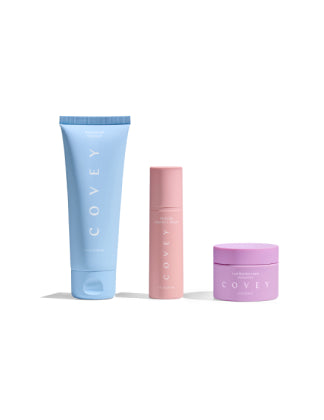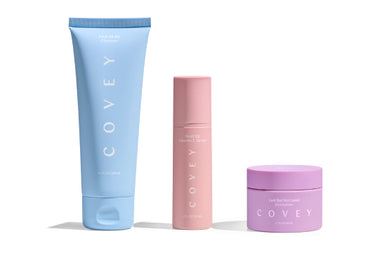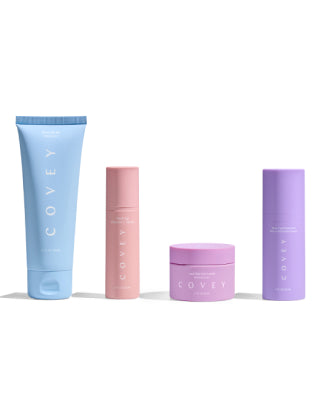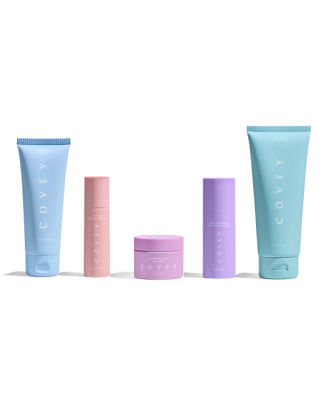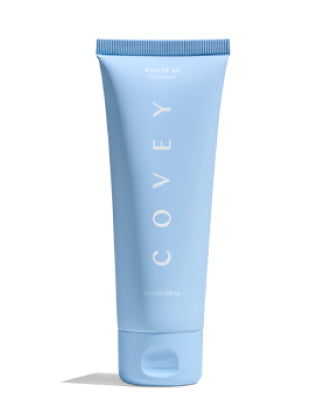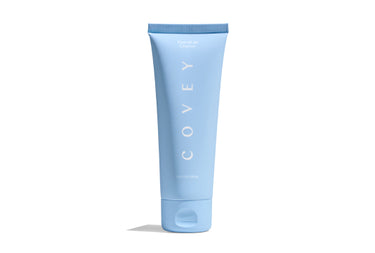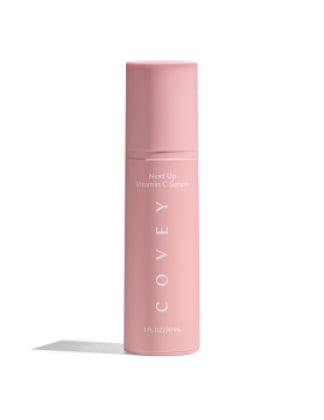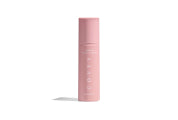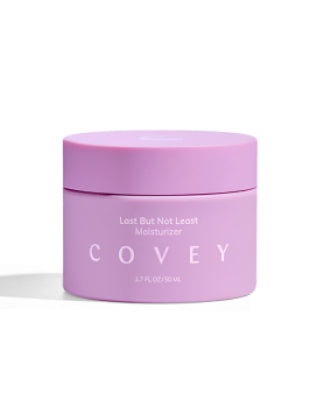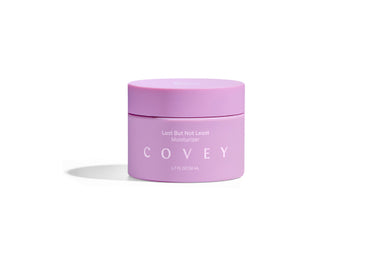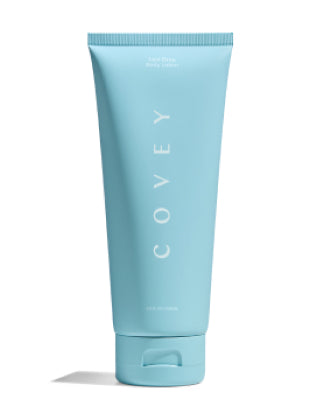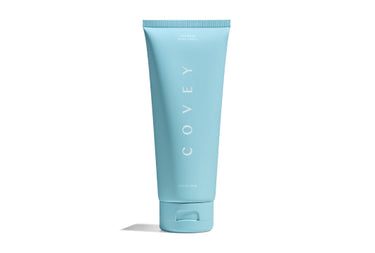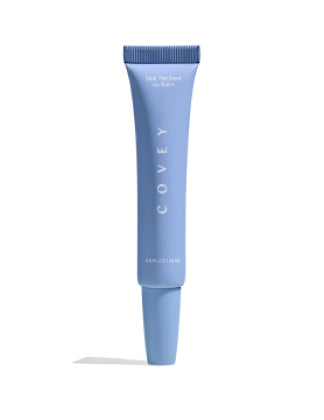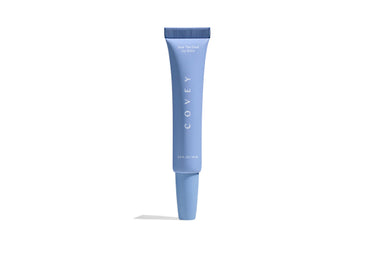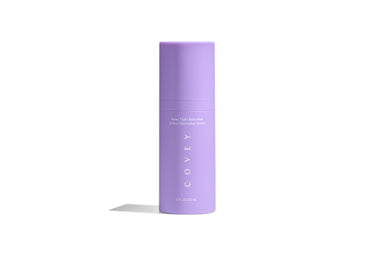
Searching for the Best Cleanser Ingredients? Here's What To Look For
Cleansing your skin is one of many things we do every single day, and often, we wash our faces and choose cleansers at the store without a second thought. Some double cleanse, others scrub. Some take after the French and simply splash their with cold water.
However you like to wash your face, knowing what ingredients your unique skin likes and what you prefer in a facial cleanser—from how much it lathers to the texture—can set your skin up for success.
Properly washing your face creates a beautiful, squeaky-clean canvas for the rest of your routine, allowing hydrating ingredients to penetrate deeper for more supple, soft, cared-for skin.
Before we get into some of the top ingredients in facial cleansers and their benefits, let's talk about how facial cleansers work.
Understanding Surfactants
First off, almost every facial cleanser on the planet needs ingredients that help lift away dirt, makeup, SPF, and the like. That's where surfactants come in.
Surfactants vary in gentleness and strength; some are harsher than others (hence that "stripped" feeling you can comes get when you wash your face with certain cleansers).
Gentle surfactants like coconut- or oil-based ones bind themselves to dirt and makeup and lifts it away while hydrating the skin.
Why do we use facial cleansers instead of a bar of soap, you may ask? Well, facial cleansers are formulated to be gentle enough for facial skin, which tends to need a lighter touch than soap alone can provide.
Best Cleanser Ingredients: Our Top 5
When you're shopping for a cleanser, peek at the ingredients list before you hit "add to cart."
1. Great for Sensitive Skin Types - Babassu Oil
Babassu oil is a rich source of lauric acid, which is naturally found in our skin’s oil. It nourishes, strengthens, while breaking down makeup and SPF with a similar effect as a cleansing balm.
We use babassu oil in Covey's First of All Cleanser for a few reasons. Most cleansers and balms rely on a carrier oil like babassu jojoba, or coconut oil to kickstart the process of melting down makeup, dirt, grime, the remnants of your sunscreen, etc.
Babassu oil is super lightweight and non-stripping, plus it's not greasy or pore-clogging in the way that jojoba or coconut oil can be. This makes babassu great for sensitive skin in particular, but compatible with all skin types.
2. Acne-Prone Skin Hero - Salicylic Acid
If you have acne-prone skin, you probably know all about oils like salicylic, lactic, glycolic, and the like. These ingredients are often included in cleansers in small doses to remove excess oil in the skin that causes acne.
Including actives encourages skin cell turnover, which can expose new, fresh skin and chemically slough away acne over time.
A word to the wise: If you're using other products in your routine that include salicylic acid, exercise caution as this can cause skin irritation and even worsen redness. If you can, inspect the ingredients in your routine to see exactly how much salicylic acid you're introducing to your skin.
3. Best for Anti-Aging - Ceramides
Did you know your body naturally produces ceramides? Sadly, your skin can begin to lose ceramides as you age, which impacts the health of your skin barrier, the elasticity of your skin, and more. Dry skin can exacerbate fine lines and wrinkles, cause skin barrier damage, and lead to dull, irritated skin.
For aging skin in particular, retaining moisture is critical for a plump and supple look.
The good news is that you can't really overdo it on ceramides in your routine, so if you use a cleanser and a moisturizing cream containing ceramides, it's all good!
4. Super-Hydrating For Dry Skin Types - Hyaluronic Acid (HA)
We know, we know, hyaluronic acid is very popular, but for good reason! Like ceramides, HA is also created within the body to maintain the delicate balance of moisture skin needs to be healthy.
As a humectant ingredient, HA binds water to the skin's collagen and help prevent trans-epidermal water loss (an enemy to all dry skin types!) You'll find hyaluronic acid in tons of skincare formulations, like in cleansers, serums and moisturizers.
For dry skin types, adding a humectant ingredient into the cleansing step begins the process of hydrating the skin ASAP. Then, you can go in with a serum or moisturizer to lock in all that goodness. Just remember to apply to slightly damp skin.
5. Nourishing For All Skin Types - Ceramides
Did you know your body naturally produces ceramides? It's a process that occurs naturally within the body, but your skin can begin to lose ceramides as you age, which impacts the health of your skin barrier, the elasticity of your skin, and more.
Dry skin can exacerbate fine lines and wrinkles, cause skin barrier damage, and lead to dull, irritated skin.
Putting it all together
Choosing a cleanser can be tricky, particularly for those with sensitive and acne-prone skin, who need specific ingredients to target their skin concerns with maximum efficacy.
When in doubt, opt for a gentle cleanser. You don't need to address every skin concern in your cleansing step, we promise! The best facial cleanser ingredients are the ones that leave your skin feeling baby soft, not tight and stripped.
Learn more about the best-in-class, derm-approved ingredients in Covey's First of All Cleanser.


